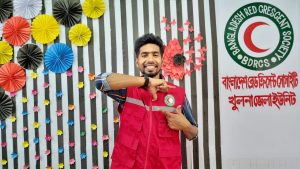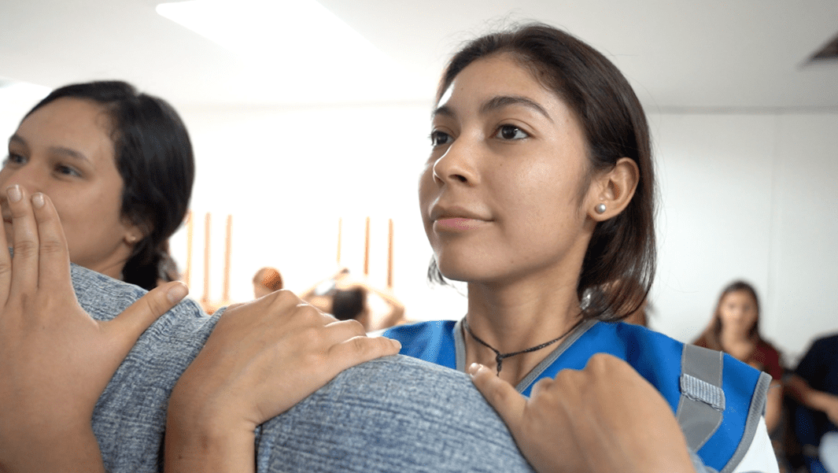The town of Paikgacha is located in one of the most disaster-prone areas of Bangladesh. Set between two major waterways that wind through the country’s sprawling southern coastal region, Paikgacha is under frequent threat of cyclones and other extreme weather events. These deadly and destructive storms make life extremely difficult for the families who live in this shrimp farming community. The road to recovery often takes time, and even then, the threat of the next disaster always looms overhead.
A programme run by the Bangladesh Red Crescent Society (BDRCS) aims to help towns like Paikgacha not only survive each storm, but to make them far more resilient through sustained disaster preparedness activities and investment in sustainable livelihoods. In short, the Coastal Disaster Risk Reduction Programme trains community members in disaster preparedness, early warning systems, post-storm response so that people’s homes, families and livelihoods become less and less vulnerable to each successive storm.
Nurjahan Akter is a valuable member of this community. She is a Cyclone Preparedness Program (CPP) volunteer and a community organizer for this project. One of the activities she organizes is bringing several women together every month for courtyard sessions where they learn about disaster risk reduction and community-based health and first aid. “We discuss a different topic each month and arrange quizzes to keep the participants motivated,” she said. “We try to explain every topic in detail to keep them informed.”
 Red Cross Red Crescent magazine
Red Cross Red Crescent magazine 






 Tech & Innovation
Tech & Innovation Climate Change
Climate Change Volunteers
Volunteers Health
Health Migration
Migration